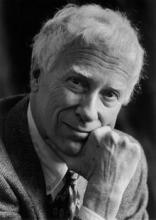To what does Nicholas Wolterstorff credit his vast and multiform philosophical achievements that have launched him as one of the most distinguished Christian philosophers of our day? Above all else, he points to his Dutch reformed heritage, heavily influenced by the thought of Abraham Kuyper. A Kuyperian vision of rigorous practical and intellectual Christian cultural engagement serves as a foundation and impulse for Wolterstorff, launching him into every corner of the philosophical arena, from ethics, metaphysics and epistemology, to politics, art and education. Behind it all is a sustained theological chord that keeps to the fore his concern that his work might serve people, and particularly those who suffer.
Wolterstorff was born in 1932 to Dutch emigrants of a small farming community in southwest Minnesota. He came to Calvin College in 1949 at a time when the phenomena of a Christian philosopher, designated as such, was virtually unknown. He was gripped by philosophy at Calvin under the teaching of Harry Jellema and Henry Stob who imparted to him the Kuyperian vision. It was in these early days that Wolterstorff met his lifelong colleague and friend, Alvin Plantinga.
Wolterstorff graduated from Calvin in 1953 and in the same year began his Ph.D. at Harvard University. Wolterstorff may have been viewed by his colleagues at Harvard as having quaint religious views, but he was respected for his intellectual rigor and was undaunted by the unpopularity of his theological commitments. Wolterstorff, then as now, saw his theological beliefs as free from any requirement that they be demonstrated by rational arguments. The epistemology that he would later work out in detail was already operative at Harvard, helping to explain how the faith of a philosopher of his standing could survive the hegemony of logical positivism.
After his Ph.D., Wolterstorff spent a year in Cambridge studying with, among others, C. D. Broad. He returned to the States in 1957, taking up a position as instructor in philosophy at Yale University. After two years at Yale, Wolterstorff came back to teach at Calvin, where he was professor of philosophy for thirty years (1959–1989). During his time at Calvin, Wolterstorff, along with Plantinga and others, developed Christian philosophy into a noted and respected feature of the American academic landscape. In 1978 Wolterstorff and others created the Society of Christian Philosophers (SCP), which has become by far the largest affiliate of the American Philosophical Association. The growth of the membership of the SCP, along with the quality of the scholarship of its members and journal, illustrate the massive clearing that has resulted from a trail that Wolterstorff helped to blaze. During these years Wolterstorff also began to address in his writings and service the cause of justice for oppressed peoples. After leaving Calvin, Wolterstorff became the Noah Porter Professor of Philosophical Theology at Yale University where he entered emeritus status in 2002.
Wolterstorff has written several books and has authored over 150 articles in professional journals. He has made notable contributions in epistemology, including Reason Within the Bounds of Religion, John Locke and the Ethics of Belief, and Thomas Reid and the Story of Epistemology. Wolterstorff and Plantinga’s Faith and Rationality (1984) is the seminal work that launched their trenchant Reformed Epistemology, which argues against modernist foundationalist criteria, that religious belief may be properly basic to one’s structure of knowledge. Wolterstorff has also written books on aesthetics and philosophy of art: Works and Worlds of Art and in Action; on justice and political philosophy: Until Justice and Peace Embrace and, with Robert Audi, Religion in the Public Square; and, on education: Educating for Responsible Action, Educating for Life and Educating for Shalom: Essays on Christian Higher Education. Wolterstorff’s most poignant and possibly most celebrated book was not a work of philosophy, but his Lament for a Son. In it Wolterstorff explores the depths of his own grief after losing his twenty-five-year-old son Eric in a mountain-climbing accident. He chose to publish the work in hopes that it might help others who mourn.
Wolterstorff has received numerous prestigious honours and awards from noted institutions including the Kuyper Chair at the Free University of Amsterdam. He has held the presidency of the American Philosophical Association, and has been awarded several other prominent lectureships in addition to the Gifford Lectures, including the Wilde Lectures at Oxford University and the Stone Lectures at Princeton Seminary.



